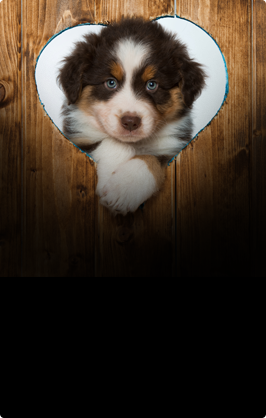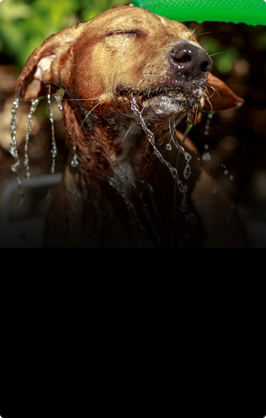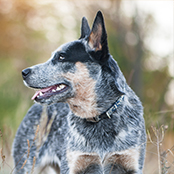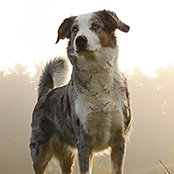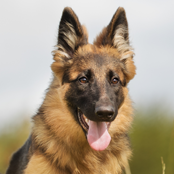Saint Bernard
This well-known breed is synonymous with the
rolling mountains of Switzerland and
saving lost and injured travellers.
SEE OUR TRAINING SERVICES
Breed Profile
This well-known breed is synonymous with the rolling mountains of Switzerland and saving lost and injured travellers. Today this quiet breed thoroughly enjoys the comfort and love of life alongside his adoring human family.
Saint Bernard Facts and Information
Trainability
Saint Bernard’s are a very intelligent dog, however when it comes to training your large sized ball of fun, they can be a wee bit stubborn. So, your Saint will require a fair bit of understanding, strong leadership, patience, a hint of experience and most importantly…consistency.
Because of the sheer size of your adorable pup, it is important that training starts early. Teaching manners is paramount, as with any big breed. Simple rules such as; not pushing past people on stairways or through doorways will literally save you armloads of shopping, embarrassment and pain (OUCH!). Early socialisation is also essential to guarantee a well-rounded dog. Consider sounds, sights and smells. Saints are not an aggressive breed, they are loving and very eager to please. Keep training short and fun. Your older pup will thrive in group training sessions and obedience. Being such a large breed having your fully-grown Saint 100% under control while on-leash is an important part of responsible dog ownership. This breed is well-known for their amazing work in the Alps, in saying this they do not tolerate heat very well so only undertake training sessions on cooler days and not at the peak of the day.
Grooming
Both coat varieties of the Saint Bernard will require grooming, normally around three times per week depending on the time of the year. A good coat strip during the warmers seasonal change will also be required. Grooming will help reduce the shedding through the home and also prevent tangles and matts from developing. Invest in a good quality rubber mitt and a comb for the occasional the . It’s a good idea to start this from puppyhood so your , Saint will tolerate being handled and groomed. Be prepared, Saints like to drool and also have large hairy paws that are perfect mud traps. Keep an old towel on hand to help combat this small annoyance of this adorable breed.
Exercise Requirements
Surprisingly, this breed doesn’t require endless amounts of exercise. They are most certainly large strong dogs and excel in many dog sports and pulling events, but are also happy with a lazy stroll once or twice a day to combat possible weight issues and keep them in good health. Due to the breed now residing in much warmer climates than originally bred, they can succumb to heat distress and heatstroke easily so it is very important to consider this when exercising.
Intelligence
Saint Bernard’s are an intelligent breed who also love to play. They can be slightly stubborn to train due to their intelligence so keeping sessions short and fun is paramount. They love nothing better than snuggling and lazing about. Many do say that this breed does take longer to mature than most other dog breeds. Keeping this in mind; you will have an adorable giant-sized puppy for a little longer than most.
Family Friendly
Saints make wonderful family companions and are a gentle yet protective breed. Young children should be supervised around Saints purely for their sheer size, some can get into trouble for accidentally knocking toddlers over with their happy and exuberant tails. It’s also important to teach young children how to behave around a dog. Saints are a very tolerant and loving breed that simply thrive indoors around their beloved human pack.
Family Friendly
Saints do not cope with heat. It is very important to protect them during the peak of summer and during the warmest part of the day. They need ample shade and water. Also consider utilising cooling techniques and devices like cool mats, and ice-blocks filled with treats. They simply love the indoor life alongside their loving family, however, many may find solace sleeping on cold tiles or outside during the winter time when in-home heating can hit it’s all time high.
Indoor/ Outdoor
It is very important to only source your new family member from a reputable breeding establishment, to ensure your puppy is healthy. Ask all the important questions about hereditary problems and ask to see mum and dad. Contact your local breed club and research your chosen breeder. Your breeder should have proof that they regularly test their dogs for genetic diseases and to ensure that the dogs they are breeding from have sound temperaments. It may take a little more time than a quick purchase, but it can save you and your family from unimaginable heartache and pain dealing with a sick puppy.
We love the Saint Bernard and provide the following
 Training
Training
 Grooming
Grooming
 Boarding
Boarding

